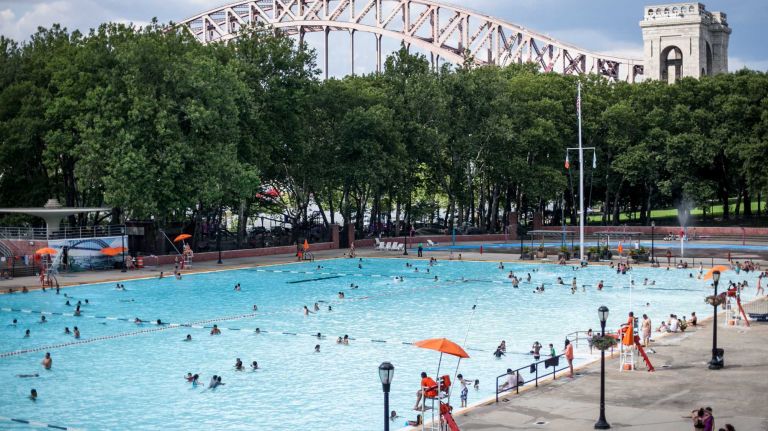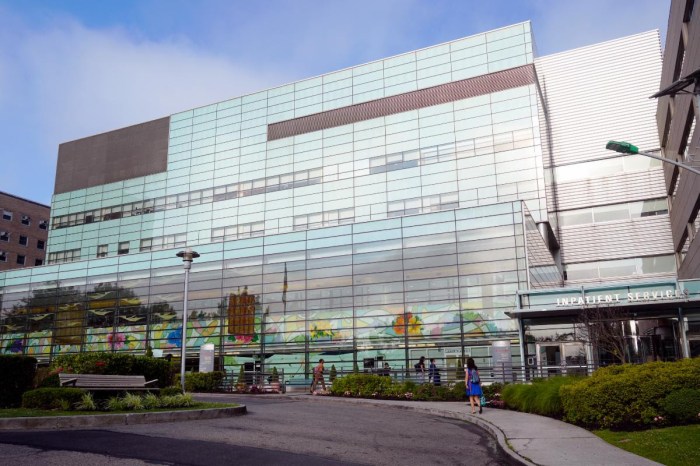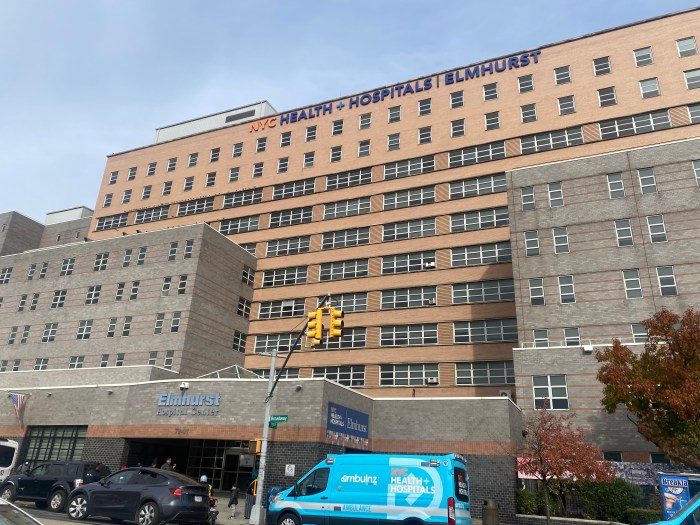New Yorkers won’t be able to beat the heat by diving into a city pool this summer.
The city will lock up all public pools for the entire season, from late June until Labor Day, in order to prevent public gatherings and the inadvertent spreading the novel coronavirus.
“Everyone would love to have our summer or some part of our summer,” said Mayor Bill de Blasio during his daily coronavirus briefing on Thursday. “But keep expectations low for now.”
The mayor hinted that social distancing rules would most likely be applied to city beaches during the summer to stop crowds from forming, causing another surge in coronavirus cases.
“Everyone is being very careful to only go outside as much as they need to to get basics and get back inside,” said de Blasio. “To go from that to mass gatherings of thousands or tens of thousands or hundreds of thousands of people, that’s a big jump, and they should only happen when we are sure it’s not going to exacerbate the disease.”
The order is part of a long list spending cuts outlined in $89.3 billion 2020-21 Executive Budget balanced in light of an expected $7.4 billion hit in tax revenue in fiscal year 2020-21.
New York City could miss out on up to $9.7 billion in lost tax funds between 2020-21, causing a recession worse that what the city endured in the 1970s, according to a report from the Independent Budget Office.
Closing all outdoor pools because of the novel coronavirus would save the city $12 million in fiscal year 2021, according to the mayor’s budget release.
Other cuts related to public spaces in the city include the suspension of 1,000 summer camp slots run by the New York City Parks Department this summer which would save the city a whopping $600,000 in 2021, according to the outline.
Additional outdoors-related austerity measures included the reduction of tree pruning and tree stump removal, cutting a combined $6.7 million in city spending fiscal year 2021.
The mayor’s office also noted that a reduction to tree and sidewalk programs would save $6 million in the 2021 fiscal year.




































